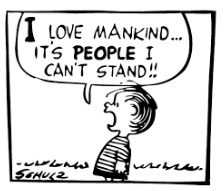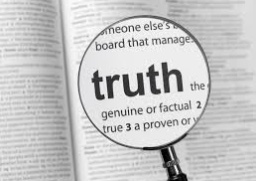Love can be wielded like a cudgel. There is the commercial Love has no Labels. Love is about diversity and inclusion. From the my Baltimore Catechism we learned of the three theological virtues of Faith, Hope and Charity; faith in our God, hope in the promise of heaven, and charity which is benevolent, disinterested, and generous, bringing forth friendship and communion. Most say Faith, Hope and Love. But no. Charity– ‘love one another as I have loved you.’ Open, sacrificial, giving, no strings, no tag lines.
Recently there was a TED talk by a Dr. Mary Donohue, a ‘preeminent keynote speaker on multigenerational workplace’. Dr. Donohue’s TED talk is about the ways in which the other generations communicate enabling one generation to talk to the other so, in her words “work doesn’t suck!” She uses a phrase like ‘conversation clever,’ describing the generations as builders, doers, adapters, brilliant and then neatly goes on to prove each point with very commercial examples. Sigh. Her talk is clever, practiced, polished and gives each generation something to like about itself and dislike about the others. Supposedly this will help communication but I don’t think it will advance love.
The way we use love in a commercial campaign is about the same. Slick, practiced, polished and neatly pigeonholed to show it is all right for same sex love, to love a sibling who is disabled, to love one of another ethnicity. And I get it. I don’t think that is the love that will save the planet–politically or culturally.
In my faith Charity is the greatest of them all. In this world Truth is the greatest of them all.  There is the ideal that love will solve our problems. I think of a banner my sister gave me while in college. We laughed about it because it is so real, so true. It is easy to say that love will conquer all. But no. Not really. It won’t conquer. It can’t even alleviate the distress. Just look at our national politics and all who say that they only want everyone to love one another. Do we see everyone as willing to be ‘benevolent and open’?
There is the ideal that love will solve our problems. I think of a banner my sister gave me while in college. We laughed about it because it is so real, so true. It is easy to say that love will conquer all. But no. Not really. It won’t conquer. It can’t even alleviate the distress. Just look at our national politics and all who say that they only want everyone to love one another. Do we see everyone as willing to be ‘benevolent and open’?
I can say I love everyone. Love is so much easier. But truth, truth is the coin of love, it is what makes love potent, desirable, unshakable. Truth is harder than love because you may have to admit to a lie, one that may have protected you, that made you look good, that served your interest.
of love, it is what makes love potent, desirable, unshakable. Truth is harder than love because you may have to admit to a lie, one that may have protected you, that made you look good, that served your interest.
Why this interest in truth?
In the middle grade mysteries I write, while love is the emotion that drives the character, it is the truth that finds the killer. A character can grow in love, but it is in finding the truth that lets the main character understand and be ready to take responsibility, to grow up. Putting together means, motive and opportunity and identifying the killer is to find the truth. Only truth breaks through.
In nonfiction it is the weeding out the propaganda, the bias, the self-interest, both in studying the historical figure and in assaying the author. In nonfiction, with a historical perspective, truth can be victim to the sham of love. It is the sham of love that wrapped a whole people allowing them to suffer totalitarianism, brutality and oppression for decades. Only truth will break through.